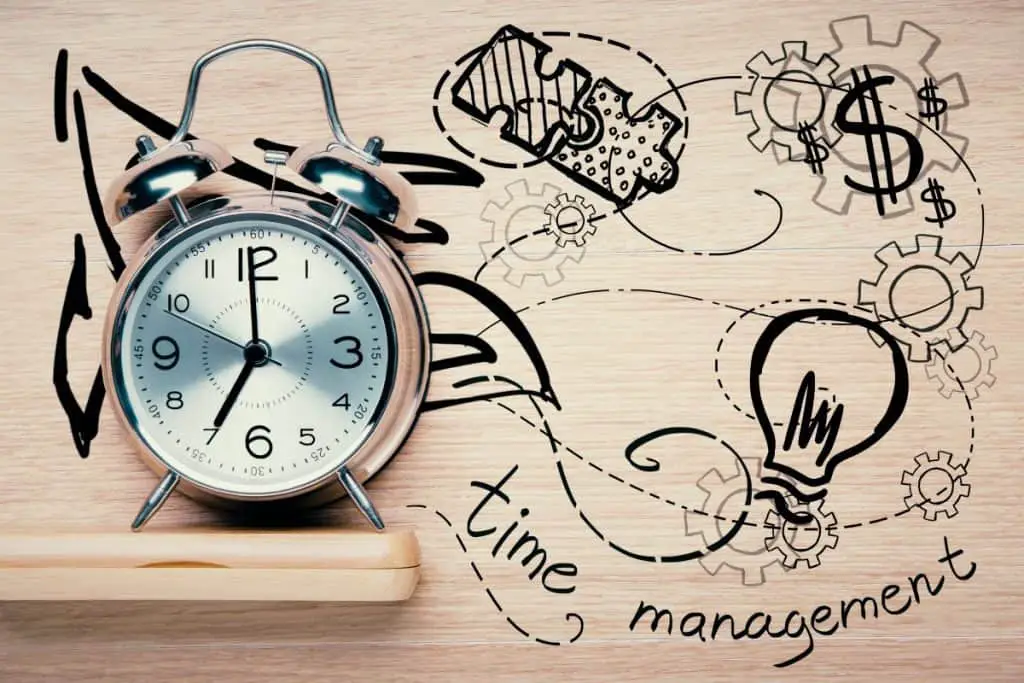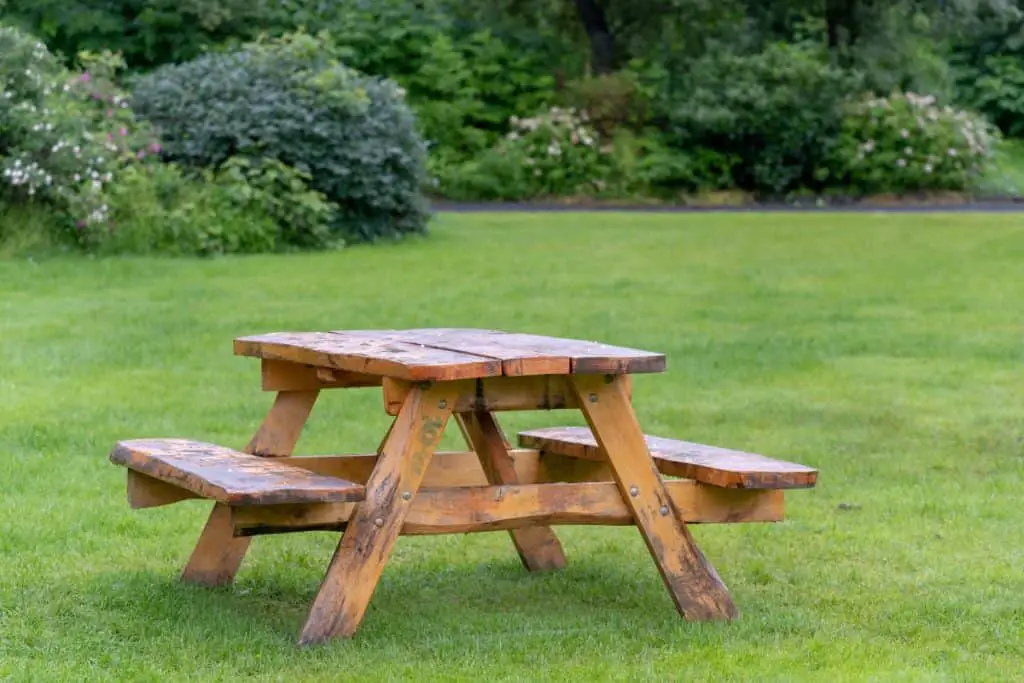How Many Hours per Day Should I Study?
Studying is one of the most daunting tasks to face as a student. There is so much pressure attached to the idea of it. Finding the best study method that works best for you can be challenging. Many students pull all-nighters with gallons of coffee to get their study sessions in. Yet we all know this is never the best method. Yet we all keep doing it.
So, the real question is: how many hours per day should we study? The consensus among universities is that for every hour spent in class, students should spend approximately 2-3 hours studying.
So, for example, if your course is three hours long two days per week, you should be studying 12-18 hours for that class per week. If your class is an hour-long once a week, you need to study that material 2-3 hours per day. Many experts say the best students spend between 50-60 hours of studying per week. This will definitely cut into binge-watching your favorite show on Netflix!

If you are taking a full course load between class time and study sessions, you have a full-time job. If you follow this suggested method, you will surely do better on tests because you aren’t cramming the night before the big exam. All professors and classes differ, but as crazy as it may sound, this is a college student’s expectation.
Before we get started with the tutorial, if you are looking to learn pretty much anything, you should really check out SkillShare. Skillshare is an online learning platform with courses on pretty much anything you want to learn. To learn more about Skillshare and its vast library of courses and get ONE FREE MONTH of UNLIMITED CLASSES, click the link below:
SkillShare – Online Learning Platform
If you are looking for the best study tools out there, you should read our article on the best study tools to enhance your studying at the link below:
The Ultimate Study Tools You Must Use to Succeed!
If you are more of an audiobook person, Audible is for you. Audible has a huge library of audiobooks on a variety of topics and listening to audiobooks is a great way to learn on the go. Audible includes podcasts and Audible Originals as well.
One audiobook I would highly recommend is How to Become a Straight A Student by Cal Newport. Cal runs the Study Hacks website and his book provides the steps and insight necessary to become an excellent student.
For more information on Audible, click the link below to get your first 30 days on Audible for free:
Audible – Your First Audiobook is On Us
This Amount of Study Time Doesn’t Seem Realistic?
I know what you’re thinking, and I agree. This level of work doesn’t seem realistic for the average college student. In reality, you need to evaluate your progress in each of your classes. Spend more time with the subjects in which your knowledge is lacking. If you’re a great essay writer, maybe spend 30 minutes reviewing book content for your English exam. Are you struggling in Spanish 3? Perhaps you should spend a couple of hours studying your vocab words.

Of course, universities and experts will suggest long hours of studying, but when it comes down to it, it’s all about knowing yourself, what areas you excel in, and the ones that cause you to struggle. If you have tons of spare time to study each class’s material for a couple of hours a day, then, by all means, do so. But the fact is, most college students don’t have this kind of time on their hands. Classes, naps, Netflix bingeing, a job to pay for college, and socializing are often why many students pull all-nighter study sessions.
What is the maximum number of hours one can study in a day?
When it comes to studying, there’s often a misconception that more is always better. We’re bombarded with tales of high achievers who seemingly spend every waking hour buried in their books, but is this the most effective way to learn? Understanding the maximum number of hours one can study in a day is crucial, not just for academic success but for maintaining a healthy balance in life.
The Science of Studying: Quality Over Quantity
The human brain, remarkable as it is, has its limits. Cognitive psychologists suggest that the optimal study duration varies between individuals, but there are some general guidelines. Studies indicate that for most people, the maximum productive study time per day ranges from 4 to 6 hours. Beyond this, the law of diminishing returns kicks in, and the efficiency of learning starts to decline.
Factors Influencing Study Capacity
- Mental Stamina: Just like physical stamina, mental stamina varies from person to person. Some may lose concentration after a few hours, while others can push longer.
- Subject Complexity: The nature of the material plays a significant role. Complex subjects like advanced mathematics or theoretical physics might drain your mental energy faster than reading a novel or reviewing history notes.
- Individual Learning Styles: Visual learners, auditory learners, and kinesthetic learners all have different thresholds. Understanding your learning style can help you optimize your study sessions.
The Role of Breaks and Downtime
The importance of breaks cannot be overstated. The Pomodoro Technique, which involves studying for 25 minutes followed by a 5-minute break, is a testament to the effectiveness of short, focused study sessions interspersed with rest. Regular breaks not only prevent burnout but also help in consolidating memory and understanding.
Balancing Study with Other Aspects of Life
It’s essential to remember that studying is just one part of a well-rounded life. Exercise, social interactions, hobbies, and rest are crucial for mental health and well-being. A balanced schedule that accommodates all these elements is key to sustainable studying.
Listening to Your Body and Mind
Ultimately, your body and mind are the best gauge of how much you can study. Pay attention to signs of fatigue, stress, or diminishing concentration. Remember, effective studying is not about cramming as many hours as possible; it’s about understanding and retaining information in a healthy, balanced way.
In conclusion, while the exact number of hours can vary, it’s clear that marathon study sessions are not the most effective approach. A balanced, mindful approach to studying, respecting your limits and the needs of your body and mind, is the key to long-term academic and personal success.
One of the questions you might be asking yourself is what time of day is best for studying. If so, we have the answer and the reasons why in our article on studying at night vs studying during the day.
Find Out What Kind of Learner You Are
I hate to break it to you, but reading and re-reading for 4 hours nonstop will not help you learn. If you want to learn efficiently, you must determine your learning style. Do you learn best through visuals? Listening? Doing? All three? As humans, we all know differently. Once you find out what kind of learner you are, you won’t have to spend as much time studying because you will have found a better study method.

That said, there are some tools you can use to optimize your learning time. One way is using a solid note-taking system that makes a review and test prep efficient. I personally use the Cornell Note-Taking Method as it is excellent at both note-taking and creating a reliable feedback system for testing myself. You can find more information on the Cornell Note-Taking Method here.
Additionally, if you are a visual learner, mind mapping can be a great way to layout the content you are trying to learn in a highly visual way. Mind maps allow you to map out the relationships and hierarchy of the concepts you are learning and help make the content more straightforward to comprehend. For more information on mind mapping, click on this link.
Manage Your Time Wisely
An hour of studying is pretty much worthless if you spend half of it sharing memes with friends on Twitter. You can cut down the number of hours per day needed for studying if you use proper time management skills. Here are some ways you can do that:
| Time Management Tip | Reason it Works |
| Use a planner for all assignment | Helps keep you organized and on top of your assignments |
| Create short-term study goals | Creates small victories that can help you build momentum. |
| Have a priority list with the most important study topics at the top of the list | Helps establish what is important and reduces friction figuring out what to do first |
| Break down assignments into smaller tasks | Reduces anxiety over how much work there is to do |
| Don’t try to multitask while studying | Multi-tasking doesn’t work and causes a mental drain over time. |
| Avoid distractions | Finding a distraction-free environments aids in focusing on your studies. |
We created a detailed list of study tips to optimize your studying and improve your academic performance, which you can find at this link.
Remember, Your Brain has Limits.
It is scientifically proven that the brain takes 30% of our energy each day. That means you do reach a limit where your mind is officially on red, like when your iPhone reaches 20%. You need to listen to this. If your brain feels fried, that’s because it is. When your mind gets like that, you probably aren’t going to retain much more information.

The best way to not have to test your brain’s limits is don’t procrastinate, study a little every day.
If you want to stay on top of your studies, you should consider using Notion. Notion is free for students and can be the hub for your scholastic life. Check out our Ultimate Guide to Notion for Students to learn how Notion can improve your academic workflow.
Quality over Quantity
Don’t worry about the time. Your study session is never going to be beneficial if you are staring at the clock, counting down the seconds the entire time. Saying you’re going to study from 4 pm-8 pm means nothing if you don’t learn anything during those four hours.
Do what you need to do, no matter how long it takes. Some days you could be done studying in 10 minutes, on other days, it might take you six hours. I can tell you to make sure you study for three hours at least every day, but that doesn’t help you honestly. You’ve probably already spent 6-8 hours at school, so staring at the wall for three hours isn’t helpful at all. But, studying for an hour then taking a nap is.

It’s all about quality over speed. Don’t speed read through a page because it means you will finish faster. You might as well not even bother. Take your time. Read thoroughly, highlight key points, write down questions in the margins, and look up words you don’t understand. THAT is real studying.
Do you use Google Docs to write your papers? Check out our guides for using Google Docs below:
| Guide | Link To Guide |
|---|---|
| How to Use Footnotes and Citations in Google Docs – Detailed Guide | LINK |
| How to Sort a List Alphabetically in Google Docs – Step-by-Step | LINK |
| How to Use the Google Docs Outline Tool with Screenshots and Video! | LINK |
| Is The Google Docs Word Count Accurate? We Tested it to Find Out! | LINK |
| Google Keep For Students – The Complete Guide | LINK |
If I do want to Study for 8 Hours, how do I do that?
Have a Saturday free that you want to spend studying? Here’s a suggested schedule for that:
| Time | Activity |
| 7 – 9 am | Check social media, shower, go over study schedule |
| 9 – 10 am | Breakfast and a break |
| 10 – 1 pm | Study. Take consistent breaks and be sure to hydrate |
| 1 – 2 pm | Lunch |
| 2 – 6 pm | Second Study session. Remember to take adequate breaks |
| 6 – 8 pm | Dinner and some rest time to hang out with friends |
| 8 – 10 pm | Final study session. Use as a review of what you studied today |
| 10 – | BED |
This method definitely won’t work on a school day, but it just shows that it is possible to study for 8 hours a day without your brain getting completely fried. This schedule gives you plenty of breaks, without studying from 10 pm-7 am straight.
What is the MAXIMUM amount of continuous study should I do?
As you study, check the time to see when you start becoming inefficient. If you start losing focus 45 minutes into studying, try studying for 45 minutes at a time, then taking a 15-minute break each hour. Personally I use the Pomodoro Technique to create an easy to stick to study schedule. It uses 25 minute periods of work followed by 5-minute breaks. After four 25-minute work periods, you take a half-hour to an hour break. This helps with focus while still giving your mind consistent break periods to rest.

If you are interested in learning more about the Pomodoro Technique and how it might help you get more done, please click the link below:
Never go beyond studying 6 hours at a time, this is maximum. This amount of time is when experts believe your brain is beyond fried. Honestly, though, you should never even get close to 6 hours at a time, especially if you use the Pomodoro Technique or a similar system to manage your time studying.
According to the National Survey of Student Engagement, the average student spends around 17 hours each week studying for classes (Source). Try to keep it around this average and not go too much more or less. More than this is just not reasonable.
Study In-between Classes
One of the best pieces of advice that I can give personally is to study in-between classes. I would use my in-between class breaks as mini study sessions. If I had an hour to kill until my next class, I would grab a cold brew at Starbucks and then find a place to sit and study. I could have sat on my phone, checking social media, or met up with friends, but I used that spare time to my advantage. If I took that hour to study during the school day, then that was one less hour I had to spend doing so after my school day finished.

Find somewhere quiet and comfortable on campus where you can throw in your earbuds and study. You can also use this time to get assignments done to leave more time for studying later that night. Get those math problems or that reading done before you even get back to your dorm. I know it may be more desirable to relax after being in class for the past couple of hours, but your future self will thank you.
Depends on Your Major
Another factor in how many hours you should study per day is your major. If you’re doing something like engineering, you’re probably going to have many more study hours than say a photography major (though they are going to have a lot of study time too.)
If you are completing your general ed courses at either a community college or university, that’s going to take a lot of studying as well. For me, once I started working on my major, my study time increased substantially. As a software engineering major, I had to focus more on designing and writing applications rather than taking tests.

So, how many hours you need to study per day is dependent on not only what kind of learner you are, but also your workload and what you is your course of study.
What if I’m Taking a Super Easy Class?
Another thing that you need to take into account while studying is that not every course needs 2-3 hours of studying. It is not a hard and fast rule. Instead, it is more a rule of thumb. It also depends on the professor, as well. For example, in community college, I had a professor who had us take notes every day in class. He highlighted what parts of the notes we needed to write down. The highlights in our notes were the test answers. I never once had to study for that class. I just had to attend. Use the time that you would be studying for that class to work on a harder class’s materials.
Too Much Studying is Not Healthy
Both physical and mental health is more important than grades, always remember that. Throughout college, I had professors profess to me “C’s get degrees.” and they weren’t wrong. Someone with all A’s and someone with all C’s both receive the same degree in the end. Don’t sacrifice your health for a letter grade. Many students already have a full load of classes from 9-5. Staying up until the wee hours of the morning is never healthy. As a student, you need to eat three meals a day and get a proper amount of sleep.

If studying is going to cause you an anxiety attack, then it’s not worth it. College puts so much pressure on your shoulders, but you can’t let it consume you, as hard as it may be. That said, much of the anxiety of studying can be offset simply by creating a consistent study schedule and taking advantage of all the resources available to you, such as teaching assistants and tutors.
Make Sure Your Weekend is Free
To protect your mental and physical health, try to get all your studying done during the weekdays. A free weekend of fun and self-care can be great to clear the mind and reduce stress. You may have to devote more time to study throughout the week, but your future self will thank you. After you leave that one 9 am class you have on Fridays, you should feel free and ready to relax, not have 8 hours of studying ahead of you. Go to your university’s football game with friends, explore the city and forget about school for a little bit. Don’t let studying consume your whole life.
In Conclusion
University experts recommend 2-3 hours of studying per one hour of class. Following this method can result in a very, very long day for the average college student.
You can use this method if it works for you, but in reality, it’s all about knowing you and how you study. Your brain has a limit, and you never want to push this limit. All-nighter study sessions are not beneficial for you or your grades. Your mind can’t comprehend that much in so little time without any sleep. There’s a reason that in elementary school before state tests, they told you to get a good night’s sleep and have a big breakfast. You should still be doing this, even in college.

Many students love to post selfies of themselves in the university library at 3 am studying during Finals, but if you’re at home in bed, you’re probably the smarter one. If they had studied each day, they wouldn’t need to be doing this extreme method.
If you can, try to study in-between classes. This activity gets you ahead of the game for your evening studying. Heck, maybe you won’t even have to study that night. Don’t spend your breaks liking pictures on Instagram, do something productive so you can spend your night relaxing.
Don’t ever let studying get in the way of your health. Don’t skip meals or stay up all night to prepare. Your health is more important than getting an A. You should never be pushing yourself past your limits, it’s just not worth it. Honestly, if you study each day, you probably won’t have to push yourself past your limits. Taking the time to be prepared can make all the difference in the end. The best students are the ones who don’t cram. They’re the ones who have mastered the material consistently throughout the semester.

You know what is best for you. We all learn in different ways. There is no perfect studying method. There is no set rule when it comes to how long you should study each day. How long to study is all up to you. Be wise in your choices and stay true to yourself, and you will have your degree in no time. You will survive, I promise.
“You can lead a boy to college, but you can’t make him think.” – Elber Hubbard.
Frequently Asked Questions
How many hours should I ideally hit the books each day?
It’s not a one-size-fits-all answer, but generally, hitting that sweet spot of 4 to 6 hours of focused study daily works wonders for most. Push beyond that, and you might just be spinning your wheels.
Is there such a thing as overstudying?
Absolutely! Overdoing it can backfire, leading to burnout and a brain that feels like mush. It’s all about quality, not just clocking hours.
Should I be taking breaks from studying, and how often?
Breaks aren’t just nice; they’re necessary! The brain loves a good breather. The Pomodoro Technique is a gem here – 25 minutes of study followed by a 5-minute break keeps your brain happy and productive.
Does the complexity of the subject matter affect how long I should study?
Absolutely. More complex subjects may require more intense focus, potentially reducing the total amount of time you can effectively study in a day. It’s important to adjust your study time based on the difficulty of the material.
Should study time be spread out throughout the day or concentrated in one session?
Spreading out study time can be more effective. Shorter, more frequent study sessions can help maintain a high level of concentration and prevent fatigue.
How does one’s learning style impact study duration?
It’s a big deal. Everyone’s got their groove- visual learners, auditory buffs, hands-on folks. Tailor your study time to suit your style for maximum efficiency.
Morning bird or night owl – does it matter when I study?
Tune into your body’s clock. Some brains fire on all cylinders in the AM, while others come alive after dark. Find your peak hours and make the most of them.
What are the red flags for studying too much?
If you’re feeling perpetually wiped out, losing the joy of learning, or can’t seem to focus, your brain might be crying out for a break. Listen to it.
Does physical exercise impact study effectiveness?
Big time. Regular exercise is like a tonic for the brain: boosting focus, memory, and overall brainpower. It’s a study buddy you don’t want to skip out on.
How can I improve my focus and concentration during study sessions?
Creating a distraction-free zone, practicing mindfulness, and ensuring you’re well-rested and fed are key. Treat your brain like the superstar it is, and it’ll perform for you.
Want More Tips and Tricks? Subscribe to our Newsletter!
If you haven’t already subscribed, please subscribe to The Productive Engineer newsletter. It is filled with tips and tricks on how to get the most out of the productivity apps you use every day. We hate spam as much as you do and promise only to send you stuff we think will help you get things done.
Check Out Our YouTube Channel!
We have a YouTube channel now and we are working hard to fill it with tips, tricks, how-tos, and tutorials. Click the link below to check it out!
Check out our Resources Page
Check out our resources page for the products and services we use every day to get things done or make our lives a little easier at the link below:








